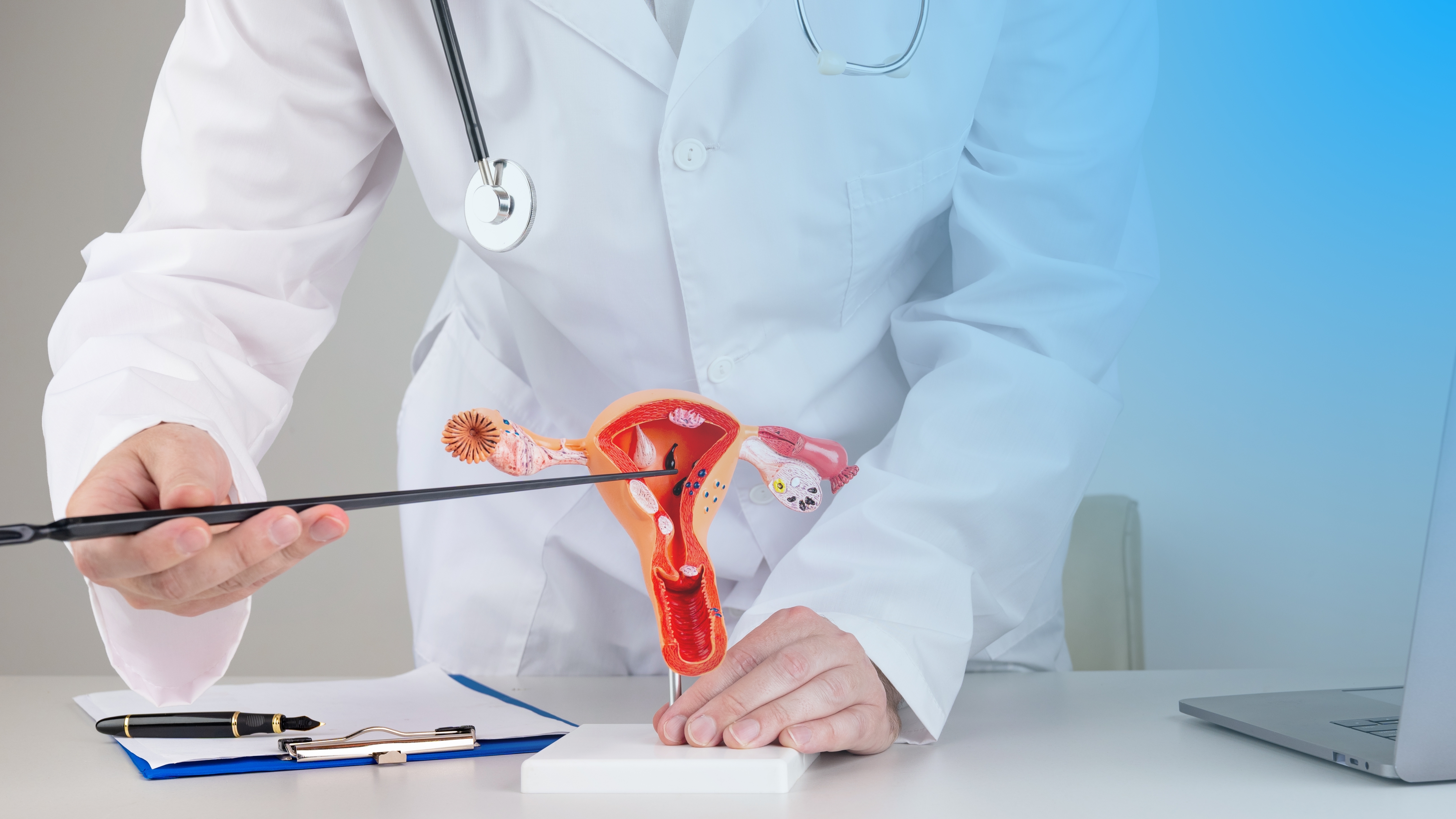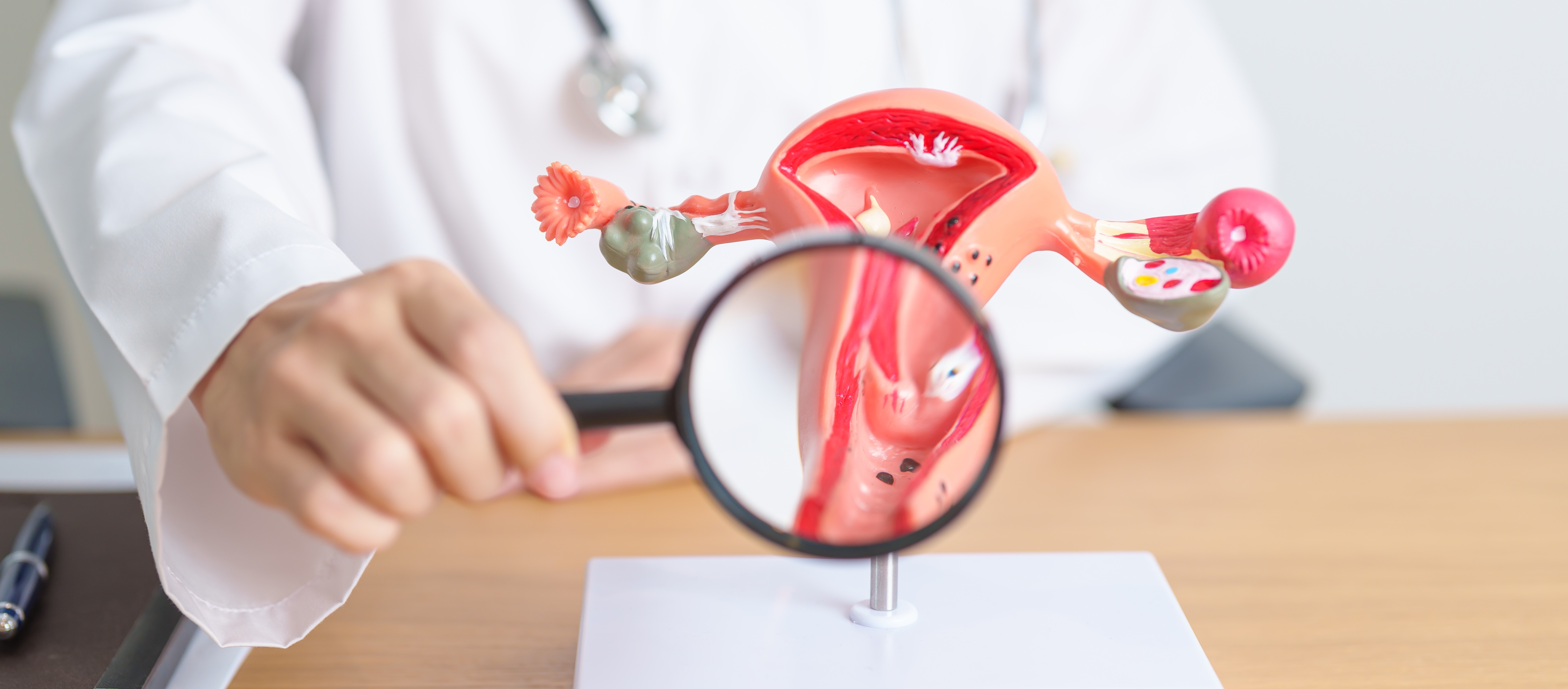Kidney disease - Symptoms, Causes & Treatment
Written By: Dr. Manish Tripathi
Updated On:December 21, 2023

What is Kidney Disease?
Kidney disease occurs when the kidneys are damaged to a point where they can no longer filter blood the way they should. Kidney disease – or Chronic Kidney Disease (CKD) - is irreversible, & destroys the kidneys.
The kidneys are essential, delivering several functions, including:
- Helping maintain the body’s mineral & electrolyte balance.
- Helping in the production of red blood cells.
- Maintaining the acid-base (ph) balance of blood.
- Helping to control blood pressure.
- Excreting water-soluble wastes & excess water.
Damaged kidneys lose the ability to perform these functions. Having kidney failure means that:
- 85-90% of kidney function is gone.
- The kidneys don't work well enough to keep you alive.
However, successful kidney failure treatments include kidney transplant or dialysis.
Causes of Kidney Disease
Two of the leading causes of kidney failure - also known as end-stage kidney disease or ESRD - are diabetes & high blood pressure. When nephrons - the kidney’s filtering units – are damaged or scarred by disease, this can lead to kidney disease. It’s worth noting that higher blood pressure & diabetes can both damage the nephrons. When these two diseases are treated, kidney disease can often be prevented or slowed down.
Diseases that can cause kidney diseases include:
- High blood pressure: There are many effective drugs available to treat high blood pressure, while healthy lifestyle changes, such as losing weight & regular exercise, can help control, & may even prevent, high blood pressure.
- Diabetes: Controlling blood sugar levels carefully in diabetics helps prevent complications like kidney disease, coronary heart disease & stroke. When diabetics have associated high blood pressure, drugs called angiotensin-converting enzyme (ACE) inhibitors might help protect kidney function.
- Glomerulonephritis: Another leading cause of end-stage kidney disease is glomerulonephritis, a disease that damages the kidneys' filtering units, the glomeruli. In many cases, the cause is not known, but some cases may be inherited & others triggered by infection.
Other causes of Kidney Disease
There are numerous causes of kidney disease. Some other diseases that may affect the kidneys include:
- Infections
- Kidney stones
- Inherited diseases, such as polycystic kidney disease
- Damage from overuse of over-the-counter painkillers
- Taking illegal drugs
When the kidneys are only functioning at ten percent, this is known as end-stage kidney disease. Those with kidney failure may experience:
- Nausea
- Vomiting
- Weakness
- Fatigue
- Confusion
- Difficulty concentrating
- Loss of appetite
Symptoms of Kidney Disease
There are numerous signs & symptoms associated with kidney disease, but not all of them will mean you are diagnosed with kidney disease. Equally, some of the signs & symptoms, if caught early, can lead to rapid treatment & a swift recovery. Kidney disease manifests in a number of ways, but there are a number of symptoms which reveal the presence of failing kidneys. Follow this article for common symptoms of kidney stones.
Symptoms of kidney disease can include:
- Tiredness, less energy or trouble concentrating.
- Anemia, which can cause weakness & fatigue.
- Trouble sleeping: Sleep apnea is more common in those with chronic kidney disease.
- Itchy, dry skin.
- Frequent urination: Can be a sign of kidney disease
- Blood in the urine: Can also indicate tumors, kidney stones or an infection
- Foamy urine
- Puffiness around the eyes
- Swollen ankles & feet: Decreased kidney function can lead to sodium retention, causing swelling in the feet & ankles
- Poor appetite: A very general symptom
- Muscle cramps
When to see a Doctor for Kidney Disease
Known as the ‘silent killer’, it’s unfortunate that kidney disease symptoms often don’t manifest until the condition is pretty well advanced. Doctors recommend being mindful of the symptoms, especially if you have diabetes & hypertension (high blood pressure). The Medcare team includes nephrologists – those doctors who specialise in kidney care – & urologists – those doctors who specialise more broadly in diseases & conditions affecting the urinary tract – which includes the kidneys. Statistics also reveal that nine out of ten people with kidney disease remain unaware that they have the condition. So, the best time to see your doctor is if any of the key symptoms below manifest themselves & if you are concerned. Some symptoms are signs of other conditions, but it’s worth noting the frequency & severity of the symptoms you are experiencing for reference, & to aid diagnosis.
See a kidney specialist if you are experiencing one or more of the following symptoms at the same time:
- Tiredness & confusion: Often described as ‘brain fog’ – if you’re struggling to concentrate, this could be a sign that the kidneys are not expelling waste from the blood as they should.
- High blood pressure.
- Less appetite, vomiting & feeling nauseous: Are signs of a failing kidney
- Urination: If there’s a change in urination habits - whether more or less often, or not at all, or if it appears frothy or dark-colored, this can be a sign of kidney issues
- Swelling (edema): If there is swelling around the eyes, or in the legs, lower back or face, this can be a kidney problem indicator
Some of these conditions may indicate a kidney problem, but Medcare is here to help diagnose & treat your condition swiftly & with utmost care. If you have symptoms of kidney disease, contact us today for an appointment with one of Medcare’s specialist team
Diagnosis of Kidney Disease
Diagnosis begins with an analysis of your medical history. A family history of kidney failure, high blood pressure, or diabetes may alert your Medcare professional to the presence of kidney disease. But other tests are generally considered necessary to confirm kidney disease, such as:
A Complete Blood Count
A complete blood count can show anemia. The kidneys make a hormone, erythropoietin, which helps in making red blood cells. With severe kidney damage, the ability to make this hormone declines, leading to a decrease in red blood cells & therefore causing anemia.
Electrolyte level Test
Kidney disease can affect electrolyte levels. Potassium may be high, & bicarbonate levels low if you have Chronic Kidney Disease. This test may also reveal an increase of acid in the blood.
Blood Urea Nitrogen Test
Blood urea nitrogen levels can become elevated when kidneys start to fail. Under normal function, the kidneys clear products of protein breakdown from your blood. After kidney damage, these by-products build up. Urea is a by-product of protein breakdown & is what gives urine its odor. Your doctor may check for build-up.
Creatinine Test
As kidney function declines, creatinine increases. A waste product generated by normal wear & tear on muscles, Creatinine is a protein related to muscle mass.
Parathyroid Hormone(PTH) Test
The kidney & the parathyroid glands interact through regulation of calcium & phosphorus. Changes in the kidney’s function affect the release of PTH. This affects calcium levels in the body. When the kidneys progress to end-stage renal disease, they no longer excrete enough phosphorus & impair vitamin D synthesis. Your bones may release calcium, too, making the bones weaker.
Renal Flow & Scan
A renal scan provides a clearer literal image of kidney function.
Renal Ultrasound
This non-invasive test provides images to help healthcare professionals determine whether there’s an obstruction.
Other Tests
Additional tests can include:
- A kidney biopsy
- A bone density test
- An abdominal CT scan
- An abdominal MRI
Treatment of Kidney Disease
Sadly, chronic kidney disease (CKD) is irreversible. Any treatment offered will focus on improving the underlying disease. While Medcare will advise on the best course of treatment, knowledge of the range of treatments available, & an understanding of what they involve will help assuage fears & prepare you for a smooth treatment & hopefully, rapid recovery to full health. Modern treatment means kidney disease is manageable, & the treatments now offered include medication, surgery or a combination of both.
Treatment will help prevent & manage the complications of CKD, such as:
- Fluid overload
- Congestive heart failure
- Anemia
- Brittle bones
- Weight loss
- Electrolyte imbalance
Ensuring control of underlying problems, such as high blood pressure (hypertension) & diabetes, should slow the progression of kidney disease.
End-Stage Renal Disease
End-stage renal disease (ESRD) occurs when kidneys begin to shut down. Once kidney function reduces to 10 percent or less, you may need dialysis or a kidney transplant. Treatment for both CKD & ESRD include:
- Diet changes - decrease fat, salt, protein, & potassium in your diet.
- Reducing salt & fluid intake - helps control blood pressure & prevent fluid overload.
- Exercise
- Quitting smoking
Supplements & medication include:
- Iron & vitamin supplements for anemia
- Calcium & vitamin D supplements
- Injection of Erythropoietin to stimulate red blood cell production
- Phosphate binders
- Stool softeners – to help with constipation
- Antihistamines – to help with itching
Medical treatment for Kidney Disease
You may need dialysis to purify the blood. This can be hemodialysis (where blood is pumped outside the body through an ‘artificial’ kidney) or peritoneal dialysis (PD), where the blood is cleaned inside your body using a special solution delivered via the abdomen. In certain cases, a kidney transplant may be the right course of action. Also, talk to your Medcare doctor about controlling your blood sugar & diabetes, if you have it. Those with CKD or ESRD may be more susceptible to infection. The following vaccinations are recommended:
- Pneumococcal vaccine
- Hepatitis B vaccine
- Influenza vaccine
- H1N1 (swine flu) vaccine
- COVID-19
Hemodialysis
Hemodialysis removes waste & extra fluid from the blood in a procedure that can be performed at home or a dialysis center. During hemodialysis, blood is pumped to a dialysis machine, then through a special filter (a dialyzer, otherwise known as an artificial kidney). After blood is filtered, it is returned to the bloodstream.
Peritoneal Dialysis
In peritoneal dialysis (PD), blood is cleaned inside the body, not outside, where the abdomen lining (knows as the peritoneum) naturally filters the blood. A cleansing solution is passed into the abdomen via a tube known as a PD catheter. Blood wastes & extra fluid are passed through this cleansing solution.
Kidney Transplant
A kidney transplant puts a healthy kidney from another person into the body. The kidney may come from a person who died, or a living donor, like a close relative, spouse or friend. It might be from someone who wishes to donate a kidney to anyone in need of a transplant. Note that kidney transplant is a treatment, not a cure, & it is important to care for the new kidney with a heightened level of care as before the transplant.
Risk Factors of Kidney Disease
The risk of kidney disease increases the older we get. The condition is also genetic, & is seen to run in families. Evidence also suggests it’s more likely to occur in people of certain ethnicities. Other risk factors of kidney disease include:
- Tobacco smoking.
- Unhealthy weight, especially obesity.
- Having a high cholesterol level.
- Diabetes (both Types 1 & 2).
- An autoimmune disease: When your immune system mistakenly attacks your body.
- Obstructive kidney disease, including bladder obstructions.
- Atherosclerosis: In which plaque builds up inside the arteries, limiting blood flow to organs.
- Liver failure &/or cirrhosis of the liver.
- Cancer of the Kidney &/or bladder.
- Kidney stones & or infection.
- Systemic lupus erythematosus: An autoimmune disease where the immune system. attacks its own tissues, creating organ inflammation & tissue damage.
- Scleroderma: A thickening of the skin.
- Vasculitis: Inflammation of blood vessels.
- Vesicoureteral reflux: When urine flows back into the kidneys.
Complications of Kidney Disease
Cardiovascular disease is a common complication of Chronic Kidney Disease (CKD), which includes:
- Heart disease
- High blood pressure
- Cholesterol issues
- Strokes
- Heart failure
CKD sufferers often experience issues with how the rest of the body works. Common complications of CKD include:
- Anemia
- Hypercalcemia (high calcium levels): Too much calcium in the blood can weaken bones, create kidney stones, & interfere with how the heart & brain work.
- Gout: A type of arthritis characterised by sudden pain & swelling in a joint.
- Metabolic acidosis: A serious electrolyte disorder characterized by too much acid in body fluids.
- Bone disease & high phosphorus (hyperphosphatemia): Manifests as muscle cramps, spasms, mouth numbness & tingling, bone & joint pain.
- High potassium levels (hyperkalemia): Causes muscle fatigue, weakness, paralysis & abnormal heart rhythms.
- Fluid build-up: Swelling & discomfort, can cause problems with the heart, lungs, & high blood pressure.
Prevention of Kidney Disease
While kidney disease is irreversible, there are some simple things we can all do to help try & avoid it. If you have diabetes or high blood pressure, it’s vital to manage those conditions under medical supervision.
Kidney diseases can be prevented by:
- Making healthy food choices: Eating more fresh fruits & vegetables, whole grains, & low-fat foods. Cutting back on salt & sugars.
- Including regular exercise in your daily routine.
- Ensuring a healthy weight.
- Ensuring you get enough rest & sleep.
- Avoiding smoking & tobacco products.
- Avoiding alcohol.
- Managing stress.
- Ensuring diabetes, high blood pressure, & heart disease are well-managed.
Meet our doctors from the Nephrology department













